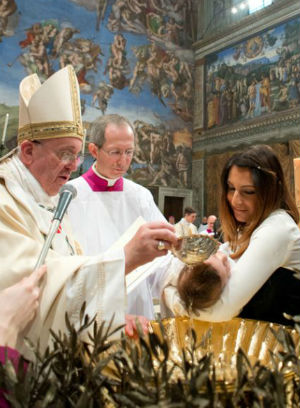Lent, a period of reflection and penance in the Catholic Church, often brings about discussions on its practices and significance. Among these traditions is fasting, which has been a cornerstone of Lenten observance for centuries. However, recent claims have surfaced suggesting that Pope Francis has made surprising statements regarding this practice. These claims have sparked curiosity and debate among believers worldwide.
Amidst the chatter, questions arise: Can one truly eat whatever they desire during Lent according to Pope Francis? This intriguing proposition challenges traditional Lenten customs, inviting us to delve deeper into the authenticity of such statements. As we explore further, it becomes crucial to discern fact from fiction while understanding the true essence of Lent as articulated by the Vatican's leadership under Pope Francis.
In light of viral posts suggesting Pope Francis endorsed eating freely during Lent, Fr. Joseph Salando from the Diocese of Albay stepped forward to clarify the situation.
Clarifying Misattributions
He stated firmly that these posts were not authentic and did not reflect the Pope’s teachings. Such assertions highlight the importance of verifying information before accepting it as truth, especially when it pertains to significant religious doctrines.
The context in which such messages spread underscores the ease with which misinformation can proliferate online. It serves as a reminder for individuals to approach circulating narratives critically, ensuring alignment with official church communications. By doing so, one upholds the integrity of spiritual guidance offered by esteemed figures like Pope Francis.
Moreover, Fr. Salando emphasized the necessity of grounding faith-based knowledge in credible sources rather than relying solely on unverified social media content. This stance reinforces the value placed upon accurate representation of papal teachings within the global Catholic community.
Verifying Authenticity of Statements
In addressing the claim that Pope Francis approved eating “whatever” one wants during Lent, thorough fact-checking revealed its falsehood. The 2024 Lenten message titled 'Through the Desert God Leads Us To Freedom' explicitly lacked any reference supporting this notion. Thus, dismissing the assertion categorically based on documented evidence provided by authoritative channels.
This revelation calls attention to the meticulousness required when attributing words or ideas to influential personalities such as Pope Francis. Ensuring accuracy prevents potential misunderstandings that could mislead followers seeking genuine spiritual direction.
Furthermore, maintaining vigilance against fabricated quotes helps preserve the intended meaning behind sacred texts and homilies delivered by ecclesiastical leaders. In turn, fostering an environment where faithful interpretations prevail over misconstrued notions.
Reinterpreting Sacrifice During Lent
The concept of sacrifice during Lent extends beyond mere physical acts like dietary restrictions. Contrary to misleading claims, Pope Francis advocates for transformative changes rooted in heartfelt devotion towards others. His teachings emphasize nurturing relationships through acts of kindness and compassion instead of focusing exclusively on bodily discipline.
By shifting emphasis away from superficial gestures, he encourages adherents to engage more deeply with their communities. This approach aligns closely with biblical principles advocating love and service toward fellow human beings. Ultimately promoting unity and solidarity amongst members of the Christian family.
Additionally, embracing this broader perspective allows practitioners to experience Lent not merely as a season of deprivation but also as an opportunity for growth and renewal. Through meaningful interactions and selfless actions, individuals cultivate virtues essential for leading fulfilling lives aligned with Christ's teachings.

